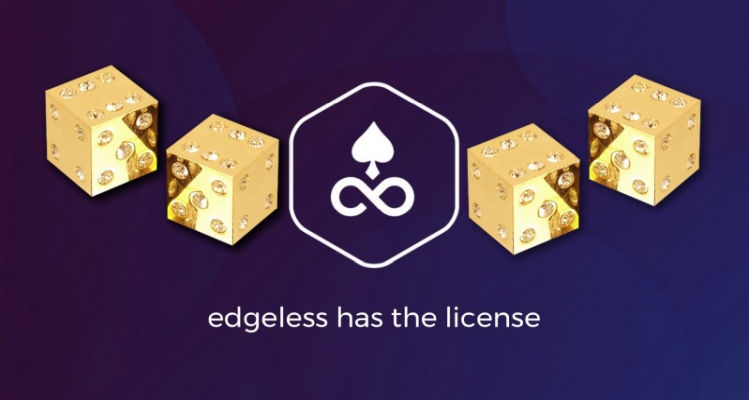According to multiple reports, the government of Curacao has issued a gambling license to an online casino known as Edgeless. If the claim is verified it is the first time that a blockchain based casino has received a license to operate gambling services in any recognized jurisdiction.
The casino works off the Ethereum blockchain using smart contracts. In a nutshell that means that the actual gaming software is written into the blockchain, rather than simply using a blockchain such as Bitcoin’s as a medium of currency exchange.
According to a December 22 announcement on Medium.com the casino will be open for registration on January 8, and a new Edgeless version launch is scheduled for January 18, 2017.
The name “Edgeless” refers to the fact that the casino has no house edge or built-in advantage over gamblers. For illustration simply imagine a roulette wheel with 18 black and 18 red numbers but no green Zero. Each bet on odd/even or red/black has an equal chance to win or lose. If a single number is chosen you have a 1:36 chance of winning and a 35:36 chance of losing so your return would be 35:1 plus your bet returned. Over time, neither you nor the house would win or lose anything.
Edgeless is not only a casino brand name it is also a cryptocurrency, much like Bitcoin. Each bet would be tendered in EDG currency. Co-founder Tomas Draksas announced on Sept 28 that Edgeless 0.1 was available in two versions on a main net Ethereum blockchain. To put the EDG coin into perspective – in addition to Bitcoin, Litecoin, Ethereum, and Bitcoin Cash there are well over 1,000 other cryptocurrencies or alt-coins in existence.
Players will be able to deposit and withdraw in the company’s coins and will also be able to deposit using other cryptocurrencies in what they are calling “shapeshift integration”. The company doesn’t seem to speak of utilizing technology advanced enough for a full-scale decentralized exchange such as EtherDelta, so it is unclear precisely how transactions will ultimately be processed.
The company states that their license was granted on December 22, 2017, under license #8048/JAZ2017–076. That “serial number” (8048/JAZ) tells us that they have received a sublicense from Master License holder Antillephone NV, that it was issued in 2017, and that the final three numbers identify the licensee specifically.
It is important to note, that although this is a major milestone in the commercialization of cryptocurrencies, and hundreds of casinos are currently permitted under the four Master License holders in Curacao – it is not a jurisdiction with much regulatory credence. Curacao provides next to ZERO player protection. Their main concern is in KYC (know your customer) and AML/CFT (anti-money laundering/combat financing terrorism) compliance. And that, in itself makes the Edgeless sublicense a historical event.
However, the outside world has no information on how business is conducted between sublicense holders such as Edgeless and Master License holders such as Cyberluck Curacao N.V. (Curacao-eGaming); Gaming Curacao (GC), Curacao Interactive Licensing N.V. (CIL), or Antillephone NV 8048/JAZ. Only a select few people, deeply involved in the system know what goes on between Master License holders and the Minister of Justice who grants the licenses which are issued by the Governor General who answers directly to the Kingdom of the Netherlands and ultimately, King Willem-Alexander.
Formerly known as Netherlands Antilles, the Kingdom of the Netherlands is a member of the Financial Action Task Force (FATF). Curacao is a member of a regional task force that is an associate member of FATF.
While that would seem to ensure that the Dutch know what is going on with all financial transactions in Curacao, it overlooks the fact that they simply do not. The entire system is operated administratively and without what most licensing jurisdictions would consider adequate legislation and supervision.
The subject is much too mysterious and complicated to delve into here other than to say that Members of Parliament in The Hague cannot even get answers to simple questions or gain access to government-operated companies’ annual reports, as noted near the end of this article in the Curacao Chronicle.
That said, the entry of Edgeless into the licensed gambling sphere also presents another historical opportunity that could change how all online gambling operations work in regulated jurisdictions. Although the company makes no mention of a Blockchain KYC solution, Ethereum smart contracts have the ability to identify, verify, and record multiple aspects of a customer’s data. Those records would be immutable, written forever in the blockchain.
In the time it took to write this article the value of EDG has moved from US$1.99 to $2.46 on a volatile day of exchanges.



